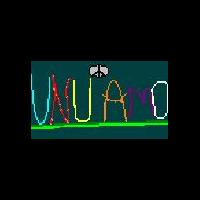Aportes: 72
Idioma: English
Roberto12 (Mostrar perfil) 22 de diciembre de 2009 14:46:05
horsto:In the beginning it was also difficult for me to pronounce these words, but now it's easier. The trick is to begin with the s, and then, after some time, pronounce the rest, f.e. s-ci-en-coI'm the same. My advice to people is this: just say the God-damn word!

RiotNrrd (Mostrar perfil) 22 de diciembre de 2009 16:25:56
But I have no trouble pronouncing it now. I just say the "s" sound, then say the "ts" sound, with a slight stop between them. scii: ssss-tsee-ee. If you think of the English "st" as one sound, you'll have trouble; it's easiest if you break them apart.
erinja (Mostrar perfil) 22 de diciembre de 2009 18:16:48
Rogir:As I said, no often-used roots, except for scienco, which is related. Ah well, I can pronounce it anyway so it's not really my problem.Do you mean to say that you don't spend your days talking about squirrels incessantly (sciuro)???

Greyshades (Mostrar perfil) 22 de diciembre de 2009 23:53:15
ceigered (Mostrar perfil) 23 de diciembre de 2009 05:38:55
 )
)Same-Aurochsen aside, this has got me thinking - does Esperanto ever use "¨" like in English, French or Dutch to signify that a following vowel is seperate e.g. "coördination", "naïf", "Australië"? (in this case I'm guessing it would be "sciï"?)
Of course normally it wouldn't matter because unless it's a ux or a j it's not really a diphthong, but just curious if anyone does use "¨" in esperanto.
Polaris (Mostrar perfil) 23 de diciembre de 2009 06:00:37
While I honestly don't like the use of the letter C when pronounced as TS (why a letter made up of other sounds? Why not just use a TS for that sound?), it bothered me greatly that they would just skip the letter, so I never adopted that. Now I'm glad I didn't.
Like it or not, it's not really all that hard to pronounce. Anyone who can say the English word "nests" ought to be able to prounounce the Esperanto word "scii".
erinja (Mostrar perfil) 23 de diciembre de 2009 14:42:30
ceigered:does Esperanto ever use "¨" like in English, French or Dutch to signify that a following vowel is seperate e.g. "coördination", "naïf", "Australië"? (in this case I'm guessing it would be "sciï"?)No, Esperanto doesn't do that. Officially Esperanto doesn't even have dipthongs, not in the traditional sense of the word, anyway. That is, the dipthonged letters are technically pronounced exactly the way the letters would be in isolation, and the sound just happens to come up sounding "dipthongy", to coin a word
Of course normally it wouldn't matter because unless it's a ux or a j it's not really a diphthong, but just curious if anyone does use "¨" in esperanto.

Rogir (Mostrar perfil) 23 de diciembre de 2009 15:36:37
Jes (Mostrar perfil) 23 de diciembre de 2009 17:11:34
Anyword containing j or ŭ next to a vowel should be pronounced as a diphthong -as far as I am concerned.
Try these ones for instance:
Lernejo
Ankaŭe
Ĥoroj

preĝejoj
ktp
ceigered (Mostrar perfil) 23 de diciembre de 2009 17:33:42
Nevermind though, not a very important question








